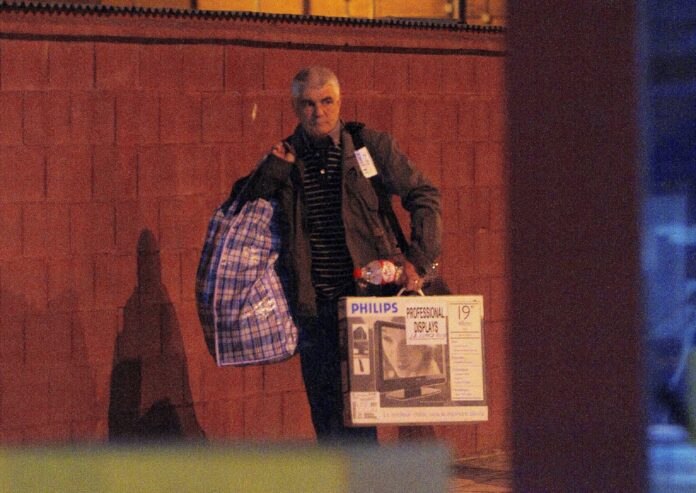The Supreme Court has annulled the acquittal of two ETA members for the “illogical” reasoning used by the National High Court. They are José Miguel Latasa Guetaria, Fermín, and José Antonio López Ruiz, Kubati. Both were tried for an attack that in July 1986 cost the lives of two civil guards in Arechavaleta (Guipúzcoa).
The Supreme considers the appeal of the family of one of the deceased and orders that the same magistrates issue a new conviction or acquittal, but in which the reasoning is sufficient. The Prosecutor’s Office had asked the Supreme Court to reject the appeal.
“The conclusion reached by the Court has not been sufficiently explained”, says the High Court after enumerating a list of facts that are considered proven by the Court itself and that do not point to an acquittal: that the accused were part of a command that acted in that area, that hours before they had committed a similar attack very close, that the use of timers allowed them not to be in the place of the attack, that their fingerprints were on the tubes to launch the grenades, that they manipulated the grenades employees and that they were experienced terrorists with multiple attacks behind their backs.
The Supreme Court ruling, for which Judge Julián Sánchez Melgar was the rapporteur, highlights that the central issue of the appeal was to consider the Court’s argument illogical by ruling out that the defendants could intervene in two attacks committed in a short period of time in the Gipuzkoan towns of Ordizia and Arechavaleta.
Both ETA members were sentenced for the first attack. The attacks were almost identical, using timed explosives that exploded at 10:30 p.m. on July 25 and 3 a.m. on the 26th. The grenade launchers did not achieve their objective, but a bomb placed nearby killed Lieutenant Ignacio Mateu Istúriz -whose father had already been assassinated by ETA- and agent Adrián González Revilla.
The Supreme Court considers it significant that traces of Fermín and Kantauri were found on the tube used in Arechavaleta, “which is undoubtedly an indication that proves the participation of Latasa and López Ruiz in the placement or transport of the launch tubes stationed in a tree and placed in a rudimentary way.
“The issue is that the trial court does not reason why such evidence, of undoubted supporting intensity, in order to the criminal participation of the accused, does not serve to reach such purpose, an aspect in which the appealed Judgment does not make a plot route that can be taken as reasonable”.
The sentence adds that the Court says that it is “unlikely” that the two defendants participated in the Ordizia attack and then in the Arechavaleta attack, but that it does not explain why, limiting itself to pointing out that certain extremes have not been proven. “But it does not justify such an assertion either, it is limited to its affirmation.”
The Supreme Court also considers it essential that the Court not consider that the defendants could have collaborated -and therefore be convicted for it- in the Arechavaleta attack, without even having to be in the town to do so. “Cooperation as essential as the contribution of the explosive material or the tools used in its execution”.
“It is also not explained in the appealed sentence why it discards in its discursive development, something that is a plausible hypothesis of the participation of the accused, while the preparation of both attacks occurred between 10:30 p.m. on July 25 and 3:00 a.m. on July 26, including travel (4 hours and 30 minutes). Nothing is said about whether it was unreasonable to think, as the accusations made clear, that they had more than enough time for the placement, on the part of the defendants, who we must not forget are experienced terrorists (they had already been sentenced repeatedly for it), of explosive devices in both locations between those hours, and taking into consideration for the trial of authorship that timers were placed to execute the act in advance”, adds the sentence.
It goes on to say that one of the elements “that most intensely demonstrates the illogicality of the appealed judicial approach” is that the judgment itself “declares the responsibility of the defendants for the acts […] by narrating that it was precisely the defendants who authors of the preparation of the attacks”.
For all these reasons, the Supreme Court upholds the Mateu family’s appeal and orders a new ruling with the necessary explanations, “so that it satisfies the right to effective judicial protection.”
Conforms to The Trust Project criteria








